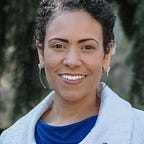Displacement & Ownership
part two
Recently I listed the house of a 95 year old Black Woman who had lived in her home for about 60 years. Her home sold for almost 250k over asking at $900,000 cash, to a local Seattle developer.
I had mix of emotions. Being a Black Realtor in the third most gentrifying city in the United States is complicated. I was thrilled for her (looking forward to my commission) and sad for our community.
My seller had needed to use a reverse mortgage to continue to live in her home over the years — she walked away with less than 350k once the sale had closed. What could I have done for her and our community? What are the community solutions out there? I wanted to know. I wanted to find a solution.
If the median home sales price in Seattle is now over $800,000, which requires a yearly household income of over $119,000 AND about $160,000 in cash for the down payment — how can Seattle increase Black Homeownership, decrease homelessness and rent-burdening rental costs — when the average household income for Black Seattleites is less than $64,000 with an average Black Household savings of below $13,000?
My client knew that a Black Family wouldn’t be buying her home. I knew that a Black Family wouldn’t be buying her home too. In fact I’d only had one Black Homebuyer in my 9 years of selling real estate part time. I‘d recently made the move out of Seattle myself — My very personal connection to the reality of gentrification and Black Displacement has informed so much of what I‘ve learned and researched over these last two years while attending graduate school.
Seattle’s Black Community has continued to be my community — even though I found myself living in Tacoma. These demographic statistics are mine. Fining a legitimate anti-displacement pathways for my community has become everything to me. I know this problem requires multiple solutions, and I’m committed that these solutions be created by people like me.
My determination to become a homeowner and make homeownership available to others has fueled my graduate school capstone research. I came to the conclusion that most of the affordable housing options and programs were focused on rentals and homelessness — and rightly so — AND, that there are very few programs that create a real opportunity for Black Homeownership for my demographic in Seattle has become a personal journey.
What if i could create a pathway to Black Homeownership and generational wealth building? What if it was a community-led, place-based solution, that shifted power to people at risk of being displaced?
What if I could find a way to create a market-rate homeownership model that could be achieved in Seattle (or any community?) for under $350,000 per unit, on single family parcels, utilizing existing density up-zoning, community preference policy and accessory dwelling unit (ADU/DADU) ordinances?
This inquiry got me thinking about Seattle’s (and other cities’) recent changes to ADU codes. Seattle is in a huge housing crisis — which may be the understatement of the year; and there doesn’t seem to be any singular, viable plan for alleviating the years of exclusionary zoning and elitism/racism that caused this shortage. Like many other cities, Seattle lifted many of the rules that prohibited homeowners from building ADU’s on their properties — most notably: parking space requirements, floor area ratio (FAR) limits, which increased how much square footage could be built on a parcel of land — allowing for up to two ADU’s per owner-occupied parcels in Seattle and maximizing the number of units that could be built on a single owner-occupied lot.
The intention behind encouraging homeowners to build backyard ADU’s was the promise of new housing stock. Affordable rental units provided by the community for the community. What happened is a proliferation of Airbnb’s and elder-family housing; effectively providing a means to wealth-building for homeowners, with little to no community benefit. No housing stock. No affordable rentals and no new homeownership opportunities.
ADU builders, real estate developers and affordable housing proponents have found themselves on the same side of the fence, but for very different reasons. Each want to increase density and are generally in favor of ending single family zoning — but that’s where the alignment ends. Upzoning for density is a blank check for developers if Seattle’s housing affordability mandate isn’t enforced. Currently, developers can buy their way out of building affordable units into their projects, rendering the affordability mandate ineffective at best.
Density can work for, or against Seattle renters. Unregulated density will continue the trend towards gentrification-fueled displacement for Seattle’s most vulnerable communities. Black Seattle is made up of about 72% renter-occupied households, with approximately 27% owner-occupied households. How could this statistic be flipped?
What if the building of ADU’s turned into affordable homeownership opportunities? I started investigating condominiumizing properties with ADU’s or rezoning to Cohousing. Could I be onto something?
That’s when it all started. I began planning a Micro-Cohousing® Community. I saw that accessible Black Homeownership was possible in Seattle for households living at 60–90% AMI. Building Micro-Cohousing® Communities could increase Black Homeownership by bringing people together — to become member-owners in individual cohousing associations of 2 and 3 units on R1- residential zoned parcels that have an existing single-family home on it.
These Micro-Cohousing® Communities could form in neighborhoods that member-owners identify with and have deep connections to, utilizing community preference policy as criteria for participation.
Seeing myself as part of the problem as a Realtor and discovering the privilege I have to be a Solutionary Activist gives me life. I’ve got a lot more to say about my concept — in fact, I’ve got a whole proposal laid out. I welcome comments and fellow Solutionaries to partner with me — more to come.
